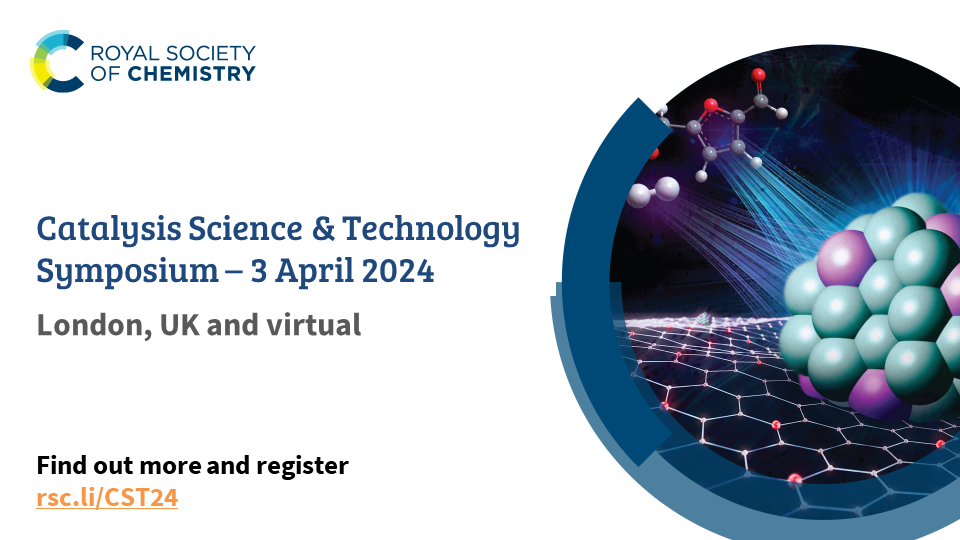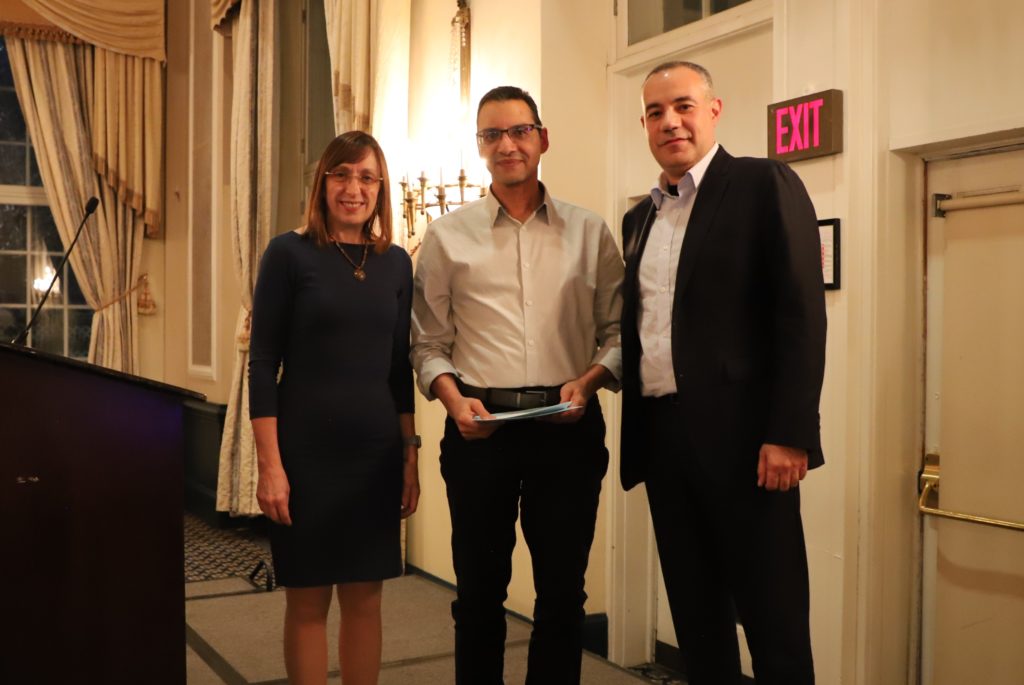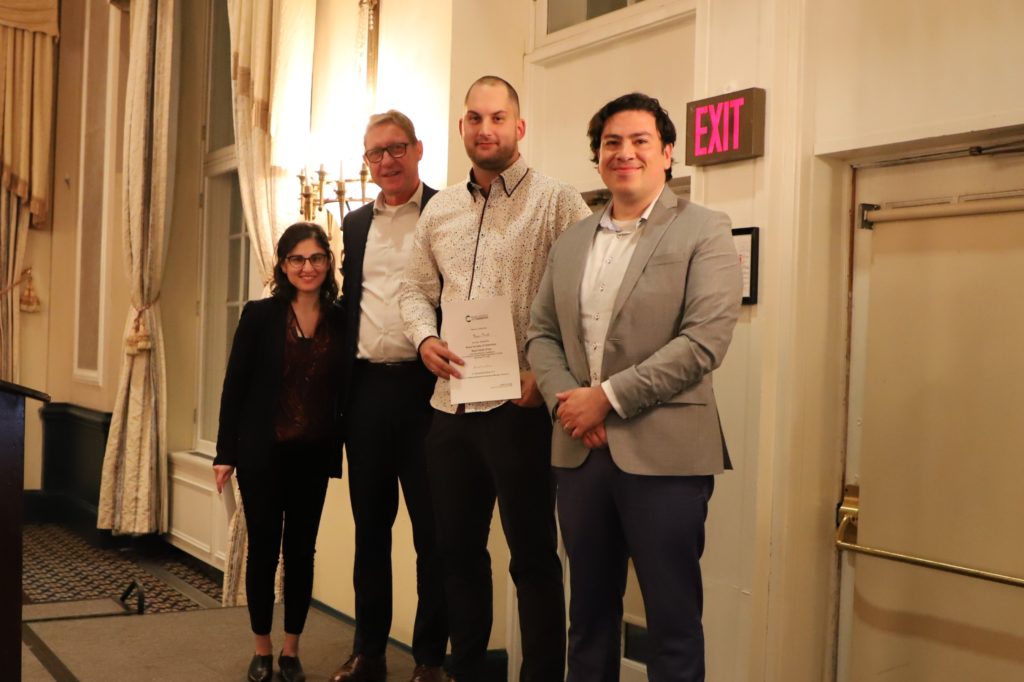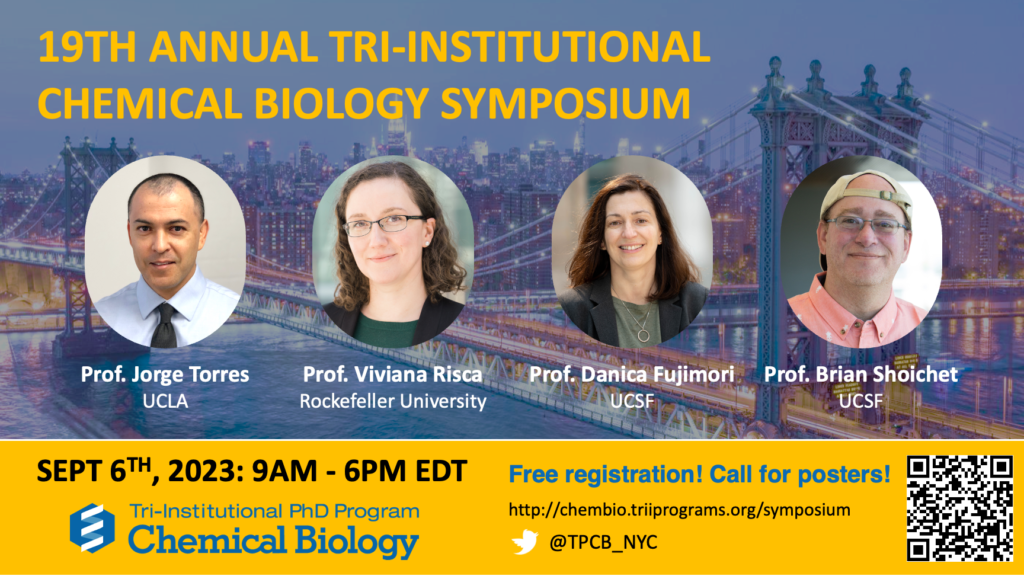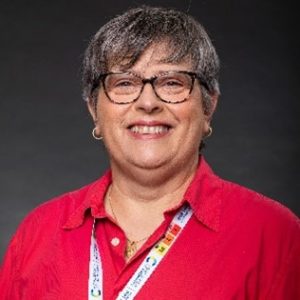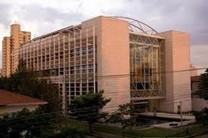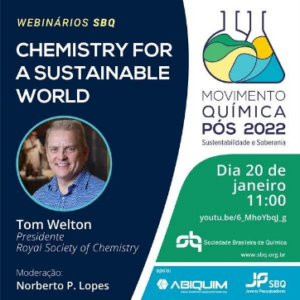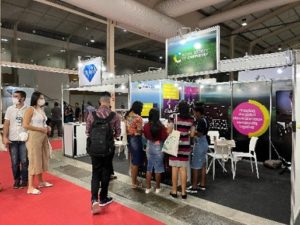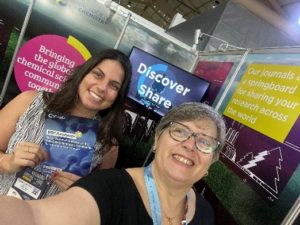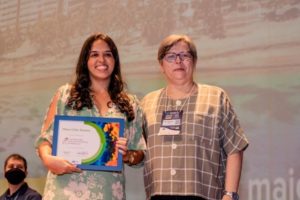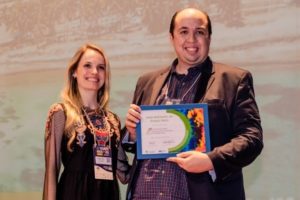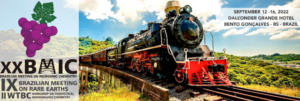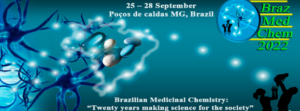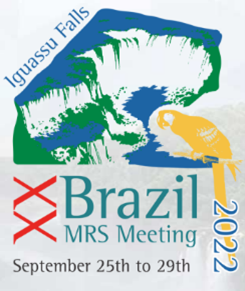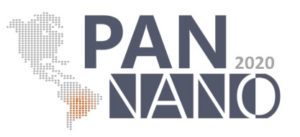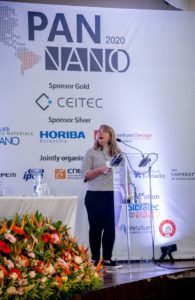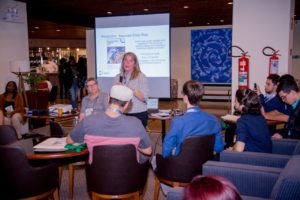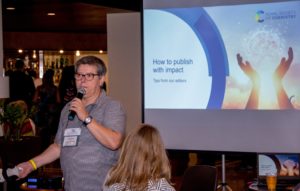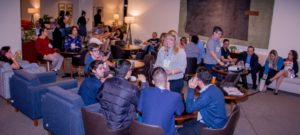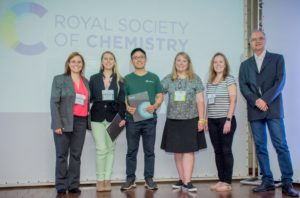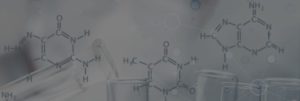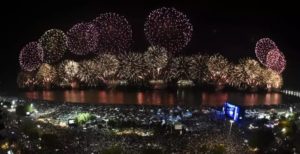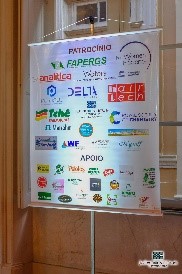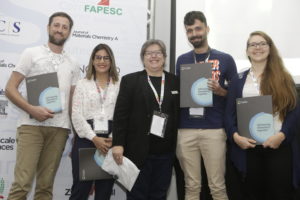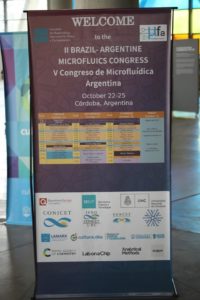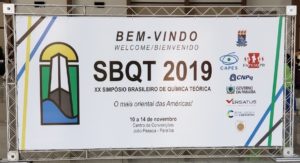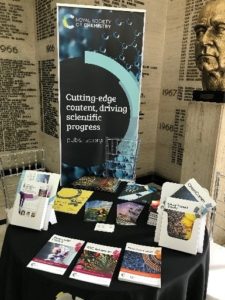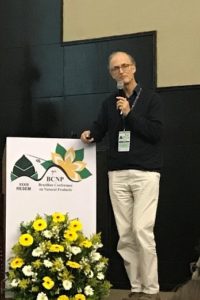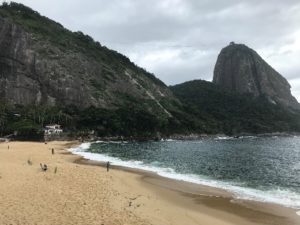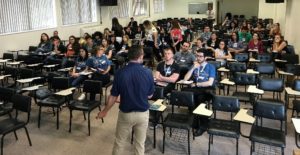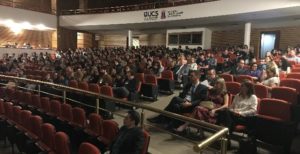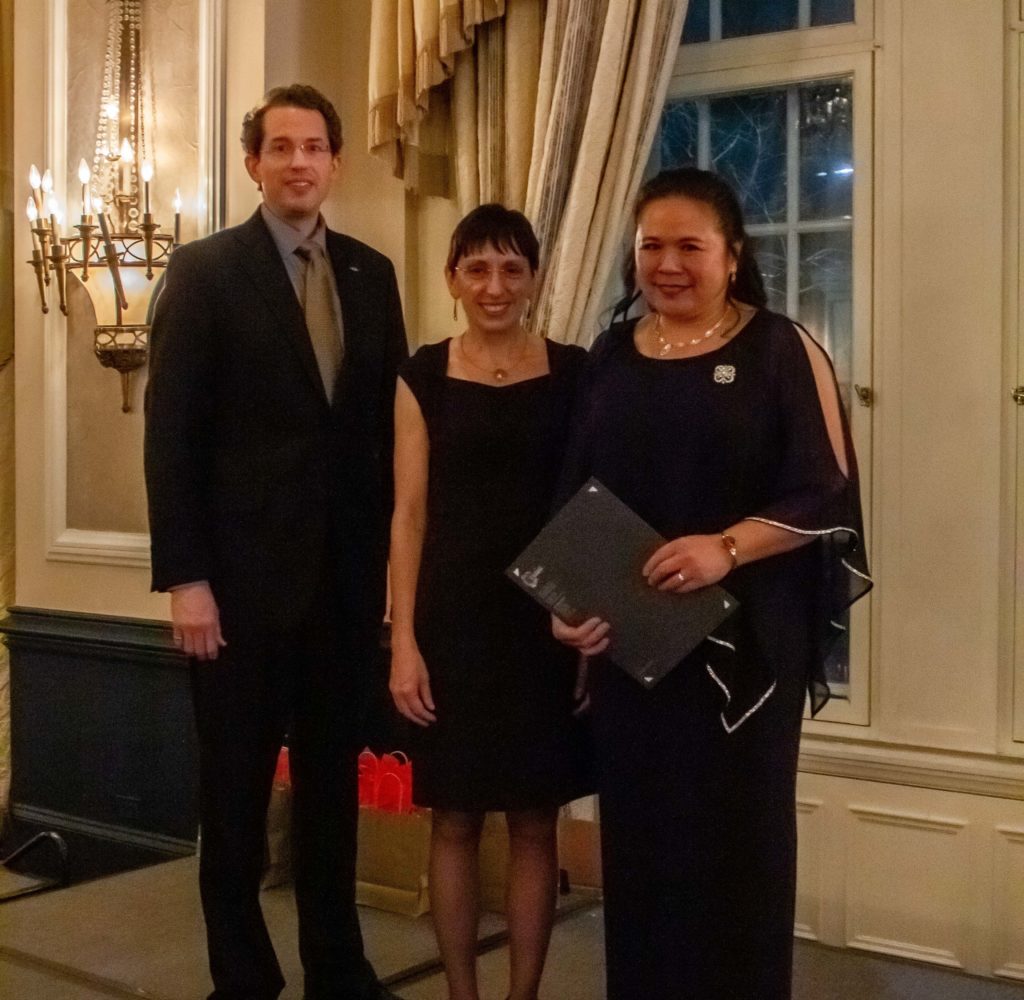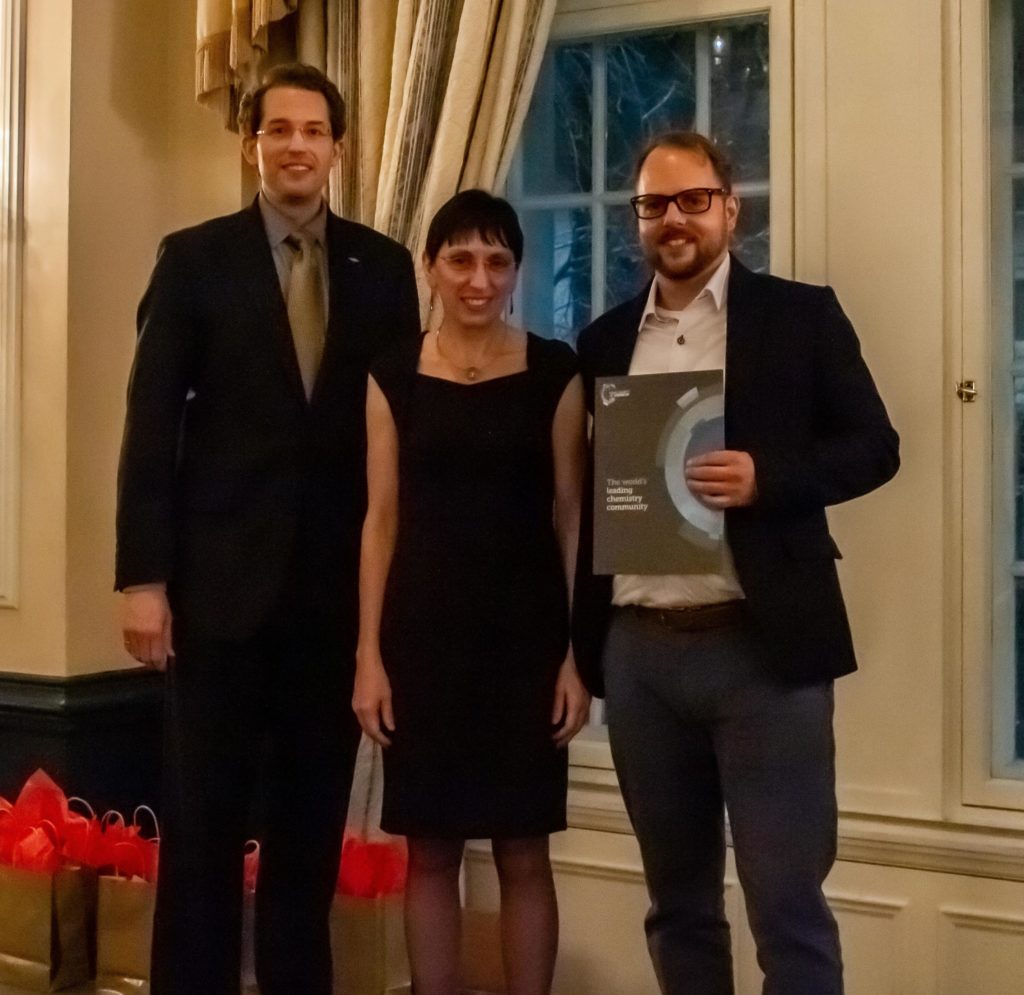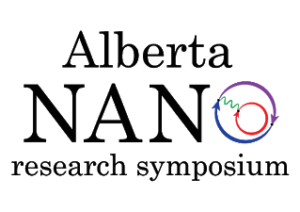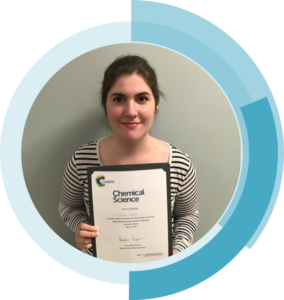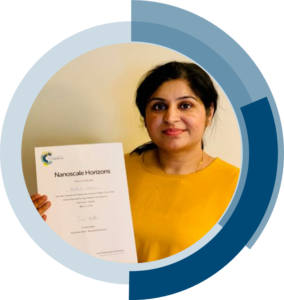As the effects of the pandemic continued to fade, 2023 began with some uncertainty about scientific meetings in and around Brazil. Nevertheless, last year saw a resurgence of in-person events for Brazilian researchers. Despite facing constrained budgets, the community made it a priority to resume hosting the most important meetings in the region.
To this end, the Brazilian Chemical Society (SBQ) Annual Meeting returned to Sao Paulo in 2023. RSC President, Prof. Gill Reid, had the opportunity to attend along with the head of the RSC Americas office, Zhengzheng Zhang. At the meeting, they presented RSC’s plan for the future of Open Access and familiarized themselves with the vibrant local community. In addition to chatting with authors, students, and Editorial Board Members from Brazil, Prof. Reid gave a scientific talk.
The conference also served as a venue to celebrate continued partnership between RSC and SBQ. RSC hosted a session during the meeting to recognize the re-signing of a Memorandum of Understanding between the two societies and to announce the winners of the 2023 JP-RASBQ-RSC award. The MoU seeks to encourage deeper connections between the RSC and SBQ by fostering collaboration in programs and events. The JP-RASBQ-RSC award, originally launched in 2021, honours early career researchers in the chemical sciences and offers prizes to help them overcome the effects of the pandemic on their research progress.
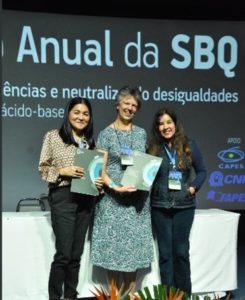 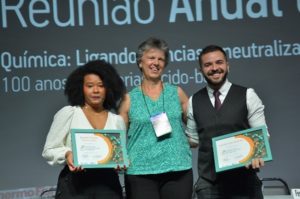 |
| Left: Prof. Gill Reid and SBQ President, Prof. Dr Shirley Nakagaki, displaying the MoU along with incoming SBQ President, Prof. Dr Rossimiriam Freitas; Right: JP-RASBQ-RSC award winners Dr. Rayane Cristian Ferreira Silva (UFMG) and Dr. Caio Machado Fernandes (UFF) with Prof. Gill Reid |
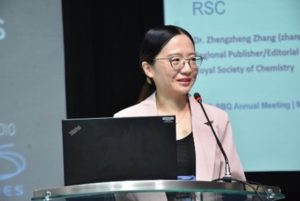 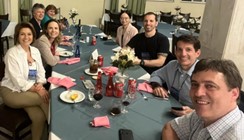 |
| Left: Dr. Zhengzheng Zhang (RSC Americas) discussing Open Access and RSC’s vision for the future at the 2023 SBQ Annual Meeting; Right: Profs Marcia Mesko (UFPel and JAAS EBM), Camila Abbehausen (UNICAMP and RA ABM), Gill Reid (RSC), Izilda Bagatin (UNIFESP and DT Council group), Zhengzheng Zhang (RSC Americas), Breno Netto (UnB and RA ABM), Rodrigo Souza (UFRJ and RA ABM) and Erico Flores (UFSM and JAAS AE) |
Then, Spring ushered in a high season for bigger meetings. Our RSC Brazil manager, Beth Magalhaes, attended a number of them seeking to grow the RSC brand, commission article submissions, spread our forward-looking Open Access policy, and promote new journal launches. Importantly, we wanted to highlight RSC as one of the most active scientific societies concerned with topics like DEI and sustainability.
The first Spring conference we sponsored was the 22nd CBCat Brazilian Congress on Catalysis 2023. Important names in the field of Catalysis were present, such as RSC member Prof. Liane Rossi (USP). The event was held near vineyards located in the south of Brazil.
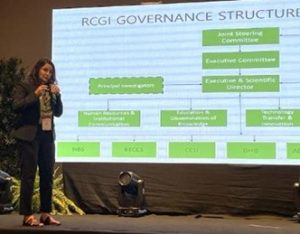 |
| Prof. Liane Rossi giving her talk at the event at the 22nd Brazilian Congress on Catalysis |
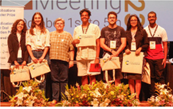 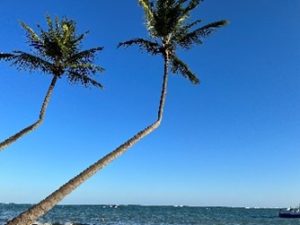 |
| Left: student prize winners during MRS-B 2023; Right: the beautiful Maceio landscape |
Next, Beth attended the Brazilian Materials Research Society (B-MRS) Annual Meeting in Maceio-AL, Brazil, where she gave a “How to Publish” talk and the RSC sponsored awards for poster and oral presentation prizes.
Travelling to Campinas, only 100 km from the RSC Brazil office in São Paulo, Beth next attended the Brazilian Society of Biophysics (SBBf) 47th annual meeting. The conference venue was also the location of Sirius, the new synchrotron light source and most complex scientific infrastructure ever built in Brazil. Researchers at the meeting presented their work in the fields of physics, chemistry, and biology. RSC had the opportunity to talk with authors about Open Access and familiarize them with journals applicable to their research.
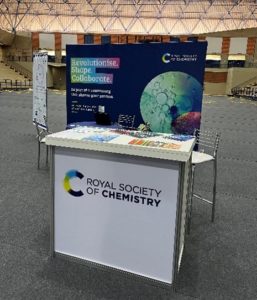 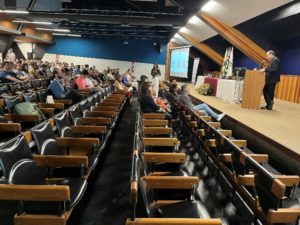 |
| Left: exhibition booth at SBBf; Right: general view of the event attendance |
Seeking to meet with researchers in all disciplines of the chemical sciences, Beth next attended a theoretical meeting for the first time: the XXII Brazilian Symposium of Theoretical Chemistry (SBQT) 2023. The RSC supported the symposium by facilitating the presence of Prof. Sir Richard Catlow (University College London and Cardiff University), a long time engaged FRSC who gave a fantastic research talk and delivered poster prizes on behalf of the RSC. A highlight at SBQT was the panel discussion about women in theoretical sciences, emphasizing a commitment of the community to change the landscape with respect to gender equity.
 |
| Poster prize winners with FRSC Prof. Catlow at the XXII Brazilian Symposium of Theoretical Chemistry |
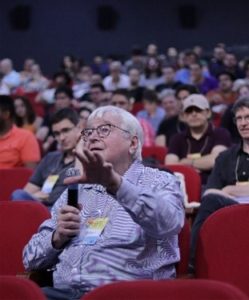 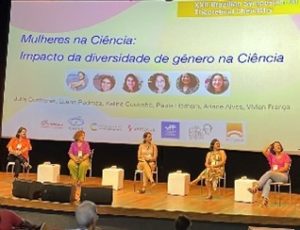 |
| Left: Prof. Catlow asking a question at SBQT 2023; Right: the Women Panel discussion at SBQT 2023 attracted a great audience |
As noted, this was a busy season for Beth – after the theoretical meeting, she moved on to the 11th BrazMedChem/9th BCNP. These two groups, representing Medicinal Chemistry and Natural Products, respectively, hold many mutual interests and thus their meetings were held together in Salvator, BA. Both were supported by SBQ divisions and the RSC. On our end, Beth chaired a Women in Chemistry discussion with Júlia Monteiro (Eurofarma), Lori Ferrins (Northeastern University) and Gemma Turon (Ersilia – UK). We also sponsored both events via poster prizes to recognize students’ hard work.
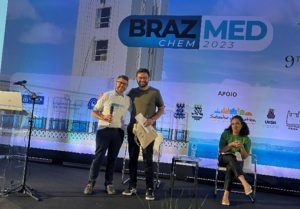 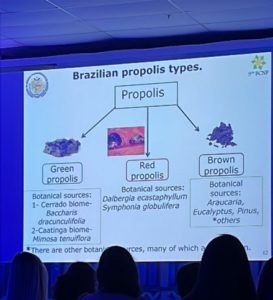 |
| Left: Prof. Marcelo Castilho, BrazMedChem Chair, delivering an RSC poster prize alongside Prof. Eliane de Oliveira Silva, BCNP chair; Right: the closing presentation, delivered by Prof. Jairo Kenupp Bastos (FCFRP-USP), on synergies where natural products and new drugs strategies could meet |
Further seeking to connect with new communities, RSC supported the 17th Brazilian Conference on Polymers (CBPol), organized by the Brazilian Polymer Association (ABPol). This community has a long relationship with the plastic industries; one focus of Beth’s attendance at the conference was to feel out the association’s attitudes on topics such as new uses for polymers and regulation and environmental issues. The RSC was very well received at the conference, and for some attendees this was their first contact with several of our publications, including Polymer Chemistry. To support this meeting, the RSC had an exhibition booth, delivered poster prizes, and gave a “How to Publish” talk. One of our MSDE Editorial Board Members, Prof. Linda J. Broadbelt (Northwestern University), attended the conference as well.
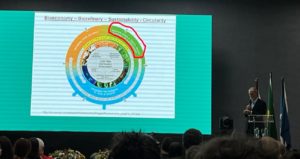 |
| Prof. Luiz Mattoso (Embrapa) discussing circular economy in agrobusiness at CBPol |
Finally, Beth returned to southern Brazil, in Bento Gonçalves, where the 7th Brazilian Meeting on Chemical Speciation (7th EspeQBrazil) and the 16th Rio Symposium on Atomic Spectrometry (16th RSAS) were hosted. The events combined workshops, courses, presentations, and networking opportunities, including a Meet the Editor session and poster prizes sponsored by RSC journals. RSAS was chaired by JAAS Associate Editor, Prof. Erico Flores, and the JAAS team was further represented by JAAS Editor-in-Chief, Heidi Goenaga-Infant, in addition to other editorial board members and engaged authors. JAAS is a top journal in the community, so these appearances made a strong impression.
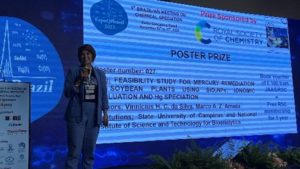 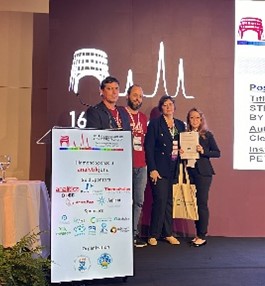 |
| Poster prize award ceremonies at EspeQBrazil and RSAS |
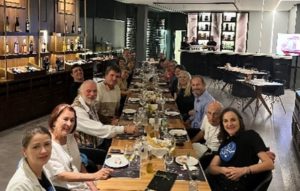 |
| Wine tasting celebration in Bento Gonçalves with JAAS authors, editors, and local organizers |
So, after many trips around the country, 2023 was finally over, and now we must wait to see the results in 2024. With so many authors being invited to submit their work, researchers making their first contact with the RSC, students engaging with the community, and different interest groups represented, it’s safe to say that 2023 was a productive year in Brazil!











